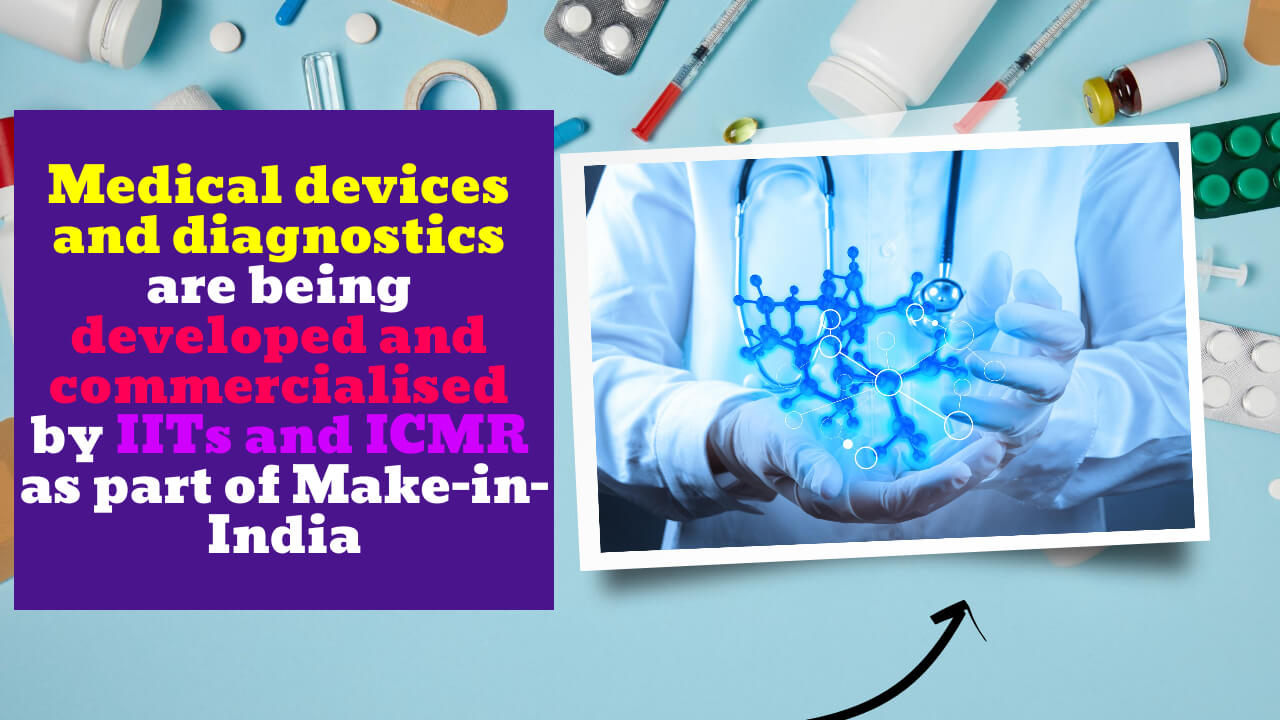The Indian Institutes of Technology (IITs) and the Indian Council of Medical Research (ICMR) have formed “ICMR at IITs.” By 2025, India’s medical device industry is expected to reach $50 billion in revenue. Collaborating with medical institutions, the CoE will develop healthcare solutions that are cost-effective and accessible to all.
Key Highlight:
- The Indian Institutes of Technology (IITs) and the Indian Council of Medical Research (ICMR) have formed “ICMR at IITs.”
- By 2025, India’s medical device industry is expected to reach $50 billion in revenue.
- Collaborating with medical institutions, the CoE will develop healthcare solutions that are cost-effective and accessible to all.
- The ICMR-DHR CoE has been established at six Indian Institutes. of Technology.
With the Indian Institutes of Technology, the Indian Council of Medical Research (ICMR) is establishing “ICMR at IITs” by setting up centers of excellence (CoE) for medical device and diagnostics product development and commercialization in India.
Products and technologies developed by research centers are expected to meet the needs of government programs such as the National Health Mission, Ayushman Bharat, and other public health initiatives.
The ICMR-DHR CoE has been established at six Indian Institutes of Technology (IITs), including IIT Bombay, IIT Guwahati, IIT Hyderabad, IIT Kanpur, and IIT Madras. It is hoped that the establishment of the “ICMR at IITs” will help bridge the gap between technology development and commercialization. It is estimated that by 2025, the medical device industry in India will be worth an estimated $50 billion.
Medical devices and diagnostics are a major source of imports for the Indian healthcare sector and the ICMR at IITs will help address this gap by fostering the development of robust, state-of-the-art, “Make in India” medical devices and diagnostics by partnering with IITs. Medical institutions will collaborate with the ICMR and DHR CoE at IITs in order to develop need-driven, affordable and inclusive healthcare solutions for wider adoption.
Director General of the Indian Council of Medical Research (ICMR), Balram Bharagava, addressed the directors and deans of the Indian Institutes of Technology (IITs) in New Delhi and pledged support and commitment to this effort.
Indian manufacturing will be incentivised and motivated by the establishment of the ICMR-DHR CoE at Indian Institutes of Technology (IITs). The CoE will provide holistic support to technologies/products that are nearing commercialization. India’s lack of affordable medical devices necessitates a “more for less for more” approach to product development, with the goal of making “global affordable need-driven healthcare innovation” a reality (GANDHI). As a result, the Indian population will have better access to affordable, high-quality healthcare, especially in the middle and lower income brackets.
There will be large-scale implementation of the program, which will contribute to economic growth by reducing imports, and the Council hopes to take these technologies for commercialization in public-private partnerships with the involvement of industry.




